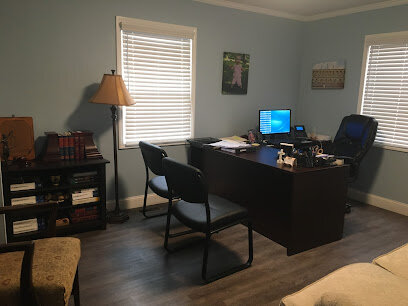Best Nursing Home Abuse Lawyers in Arkansas
Share your needs with us, get contacted by law firms.
Free. Takes 2 min.
Or refine your search by selecting a city:
List of the best lawyers in Arkansas, United States
About Nursing Home Abuse Law in Arkansas, United States
Nursing home abuse is a serious concern across the United States, including in Arkansas. It refers to the neglect or mistreatment of elderly residents in nursing homes or long-term care facilities. Abuse can be physical, emotional, sexual, or financial, and it can also include neglect, such as failing to provide basic necessities. Arkansas has specific laws in place to protect nursing home residents and to hold facilities and individuals accountable for abuse. Protecting the rights and safety of vulnerable elders is a top priority, and there are legal avenues available for victims and their families to pursue justice and compensation.
Why You May Need a Lawyer
Nursing home abuse cases can be complex and emotionally challenging. Working with a qualified attorney can be crucial in several situations, including:
- Suspected physical or emotional abuse or neglect of a loved one in a facility
- Unexplained injuries, sudden changes in behavior, or rapid health decline of a resident
- Signs of financial exploitation, such as missing funds or unauthorized account activity
- Wrongful death or severe medical complications resulting from neglect or abuse
- The facility or staff refusing to provide information, access, or medical records
- Desire to pursue a personal injury, wrongful death, or class action lawsuit
- Difficulties navigating complaints with state regulators or law enforcement
An experienced lawyer can help investigate incidents, collect evidence, navigate Arkansas-specific legal processes, and ensure your loved one's rights are protected.
Local Laws Overview
Arkansas has several important statutes and regulations that govern nursing home operations and protect residents against abuse, including:
- Arkansas Adult and Long-Term Care Facility Resident Maltreatment Act establishes definitions of abuse, neglect, and exploitation and outlines mandatory reporting by care workers and others.
- The Arkansas Department of Human Services (DHS) Office of Long Term Care regulates, monitors, and investigates complaints against nursing homes.
- State law requires that abuse or neglect be reported immediately to law enforcement or DHS for investigation.
- Victims and their relatives can pursue civil legal claims for compensation related to injuries, emotional suffering, or wrongful death caused by nursing home abuse.
- Arkansas law allows for punitive damages in cases of egregious mistreatment or gross negligence.
Arkansas also follows federal guidelines under the Nursing Home Reform Act and the Centers for Medicare and Medicaid Services (CMS), ensuring minimum standards for resident rights and safety.
Frequently Asked Questions
What are common signs of nursing home abuse or neglect?
Warning signs include unexplained injuries, bruises, bedsores, sudden weight loss, withdrawn behavior, poor hygiene, fear of staff, or changes in financial accounts.
Who do I report suspected nursing home abuse to in Arkansas?
Abuse or neglect should be reported to the Arkansas DHS Adult Protective Services hotline and, if necessary, local law enforcement. Medical professionals are also mandatory reporters under state law.
Can I file a lawsuit on behalf of my loved one?
Yes, family members or legal representatives can initiate lawsuits for abuse or wrongful death on behalf of incapacitated nursing home residents in Arkansas courts.
What kinds of compensation might be available?
Victims and their families may be entitled to compensation for medical bills, pain and suffering, emotional distress, financial losses, and sometimes punitive damages in severe cases.
Is there a time limit to file a nursing home abuse claim in Arkansas?
The statute of limitations typically requires claims to be filed within three years of the abusive incident or injury, but prompt legal action is advised.
Are nursing homes required to carry insurance for abuse claims?
Many facilities carry liability insurance that may cover abuse or neglect claims, but coverage and limits can vary. An attorney can help identify all potential sources of compensation.
How can I prove nursing home abuse?
Evidence might include medical records, witness statements, photographs of injuries, financial documents, and reports from DHS investigations or regulatory inspections.
What rights do Arkansas nursing home residents have?
Residents have rights to dignity, respect, safe living conditions, appropriate medical care, communication with family, and the ability to report grievances without retaliation.
Should I remove my loved one from the facility if abuse is suspected?
If immediate danger is suspected, removal may be necessary. Consult with authorities and a lawyer to determine the safest option for your loved one.
Can criminal charges be brought against abusive staff members?
Yes. Severe abuse, neglect, or exploitation can result in criminal prosecution in addition to civil lawsuits against individuals or the facility itself.
Additional Resources
If you need information or assistance related to nursing home abuse in Arkansas, consider contacting these organizations and agencies:
- Arkansas Department of Human Services - Office of Long Term Care
- Arkansas Adult Protective Services
- Arkansas Attorney General's Office - Consumer Protection Division
- Arkansas Ombudsman Program (for complaints about long-term care facilities)
- Centers for Medicare and Medicaid Services (CMS) Nursing Home Compare
- AARP Arkansas and National Center on Elder Abuse (NCEA)
Next Steps
If you suspect nursing home abuse, prioritize the safety and well-being of your loved one. Medical attention should be sought for any urgent health concerns. Promptly report suspicions to Arkansas Adult Protective Services or local law enforcement for investigation. Gather as much evidence as possible, including documentation, photographs, and witness information.
Consulting an experienced Arkansas nursing home abuse attorney is vital. A lawyer can explain your options, investigate the circumstances, and help you file complaints or lawsuits if needed. Many attorneys offer free consultations and will not collect fees unless you recover compensation. Acting quickly helps protect your loved one's rights and improves the likelihood of a successful legal outcome.
Lawzana helps you find the best lawyers and law firms in Arkansas through a curated and pre-screened list of qualified legal professionals. Our platform offers rankings and detailed profiles of attorneys and law firms, allowing you to compare based on practice areas, including Nursing Home Abuse, experience, and client feedback.
Each profile includes a description of the firm's areas of practice, client reviews, team members and partners, year of establishment, spoken languages, office locations, contact information, social media presence, and any published articles or resources. Most firms on our platform speak English and are experienced in both local and international legal matters.
Get a quote from top-rated law firms in Arkansas, United States — quickly, securely, and without unnecessary hassle.
Disclaimer:
The information provided on this page is for general informational purposes only and does not constitute legal advice. While we strive to ensure the accuracy and relevance of the content, legal information may change over time, and interpretations of the law can vary. You should always consult with a qualified legal professional for advice specific to your situation.
We disclaim all liability for actions taken or not taken based on the content of this page. If you believe any information is incorrect or outdated, please contact us, and we will review and update it where appropriate.
Browse nursing home abuse law firms by city in Arkansas
Refine your search by selecting a city.
















